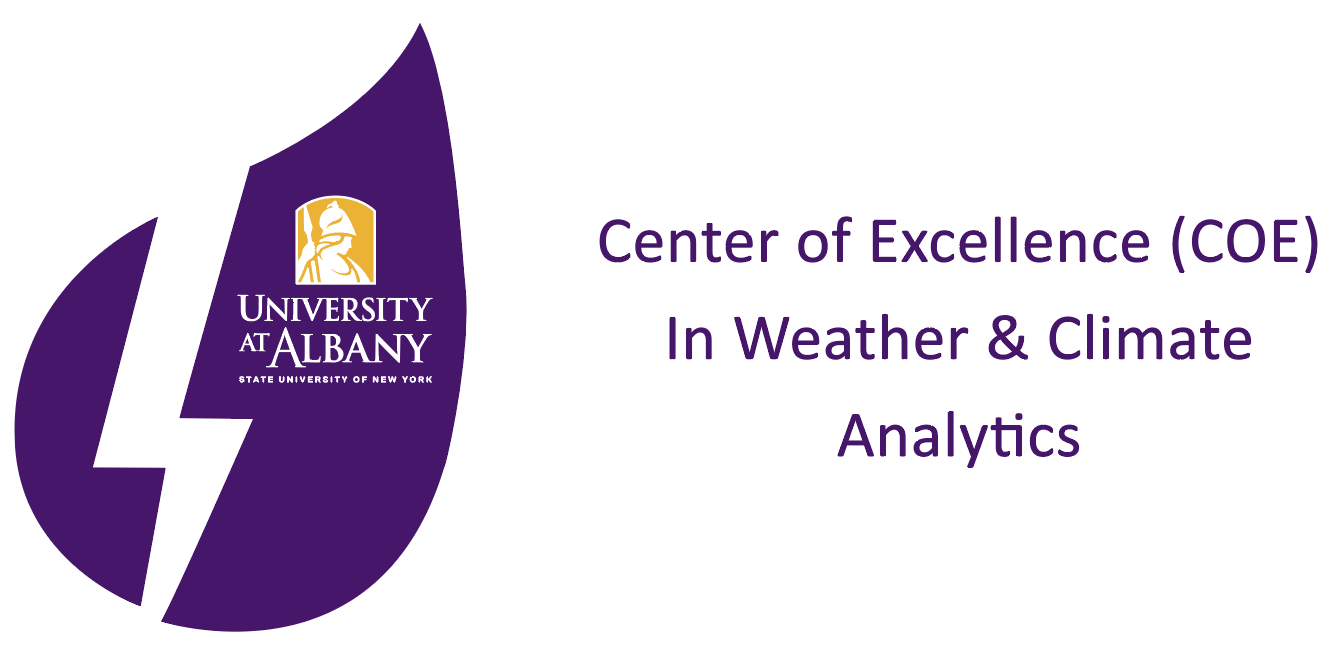Pathways to a Renewable Energy Economy through the weather enterprise
THANK YOU FOR ATTENDING OUR 1ST ANNUAL RENEWABLE ENERGY CONFERENCE
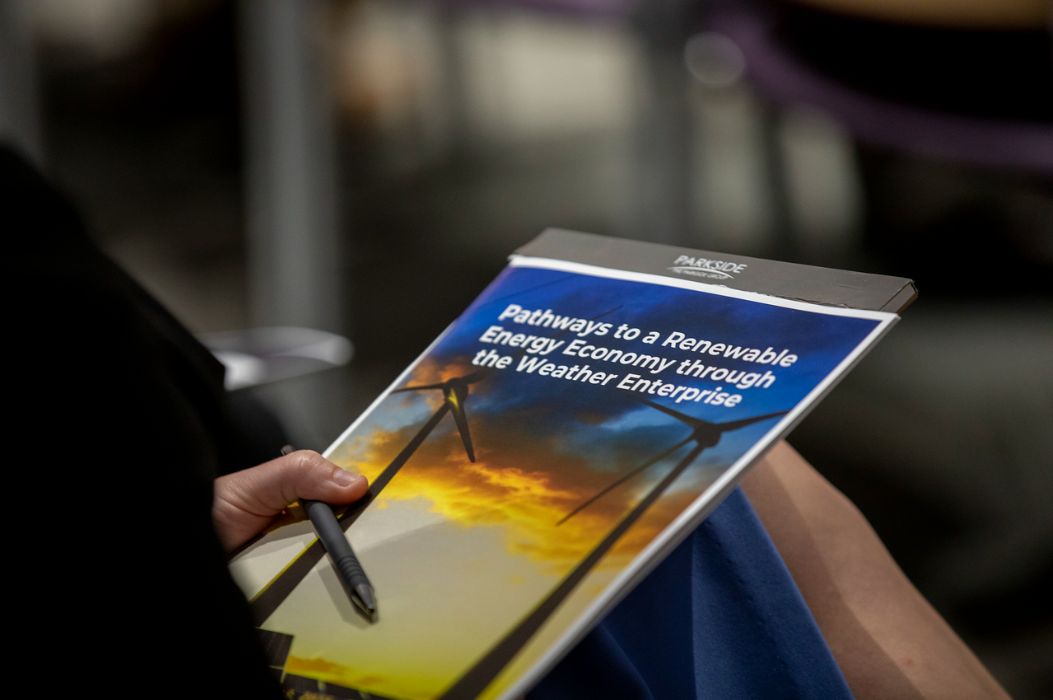
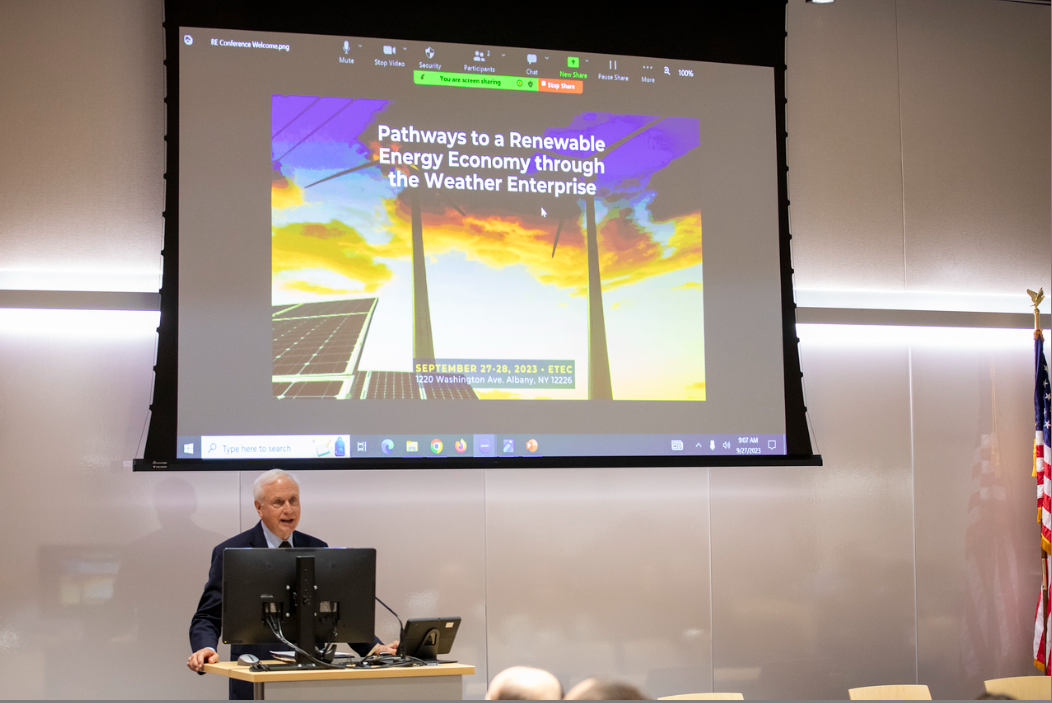
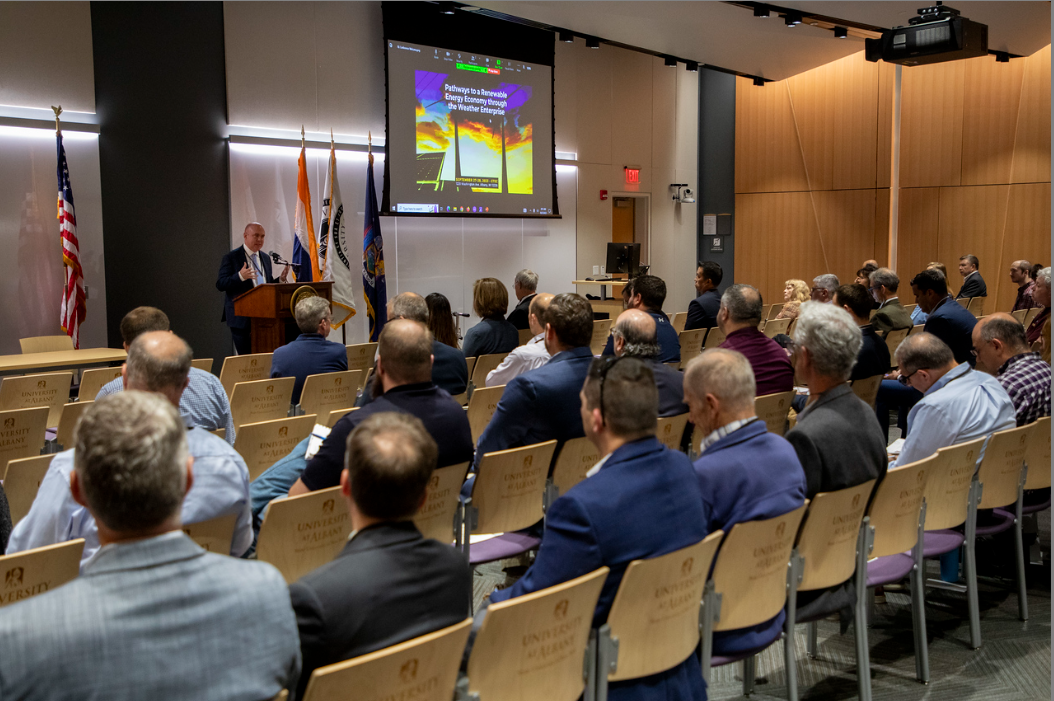
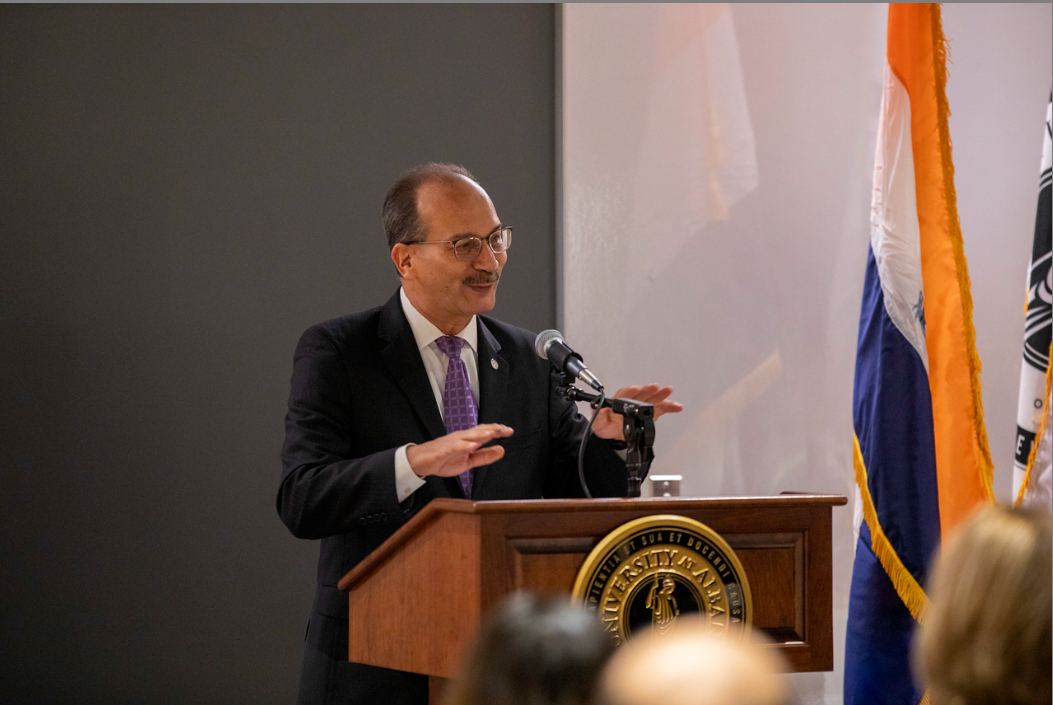
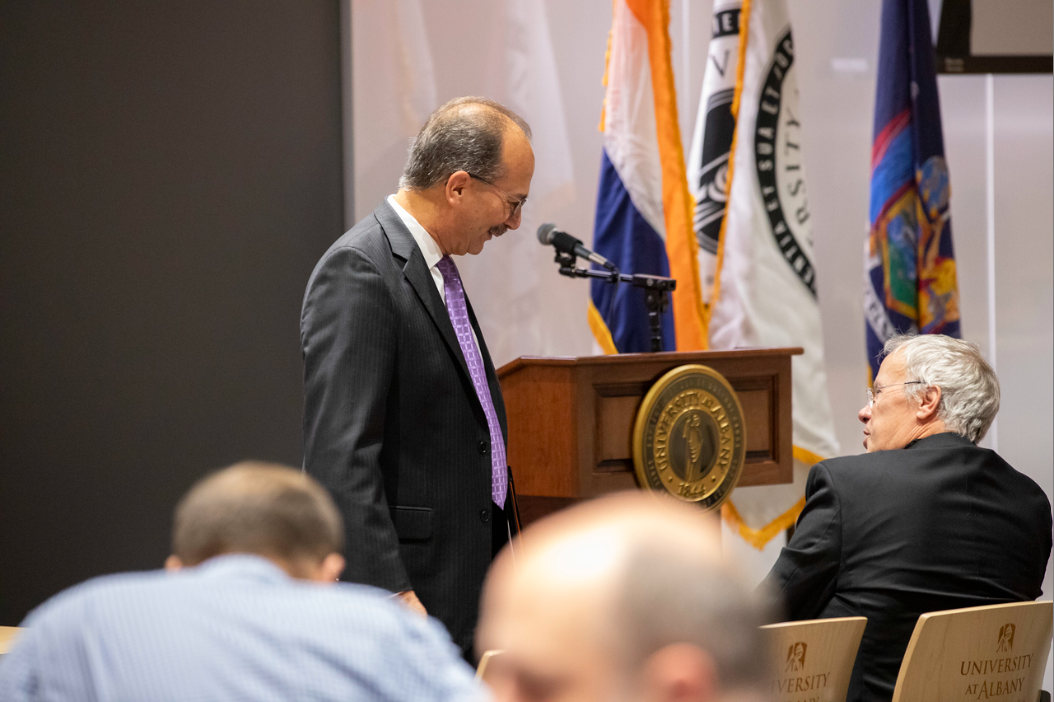
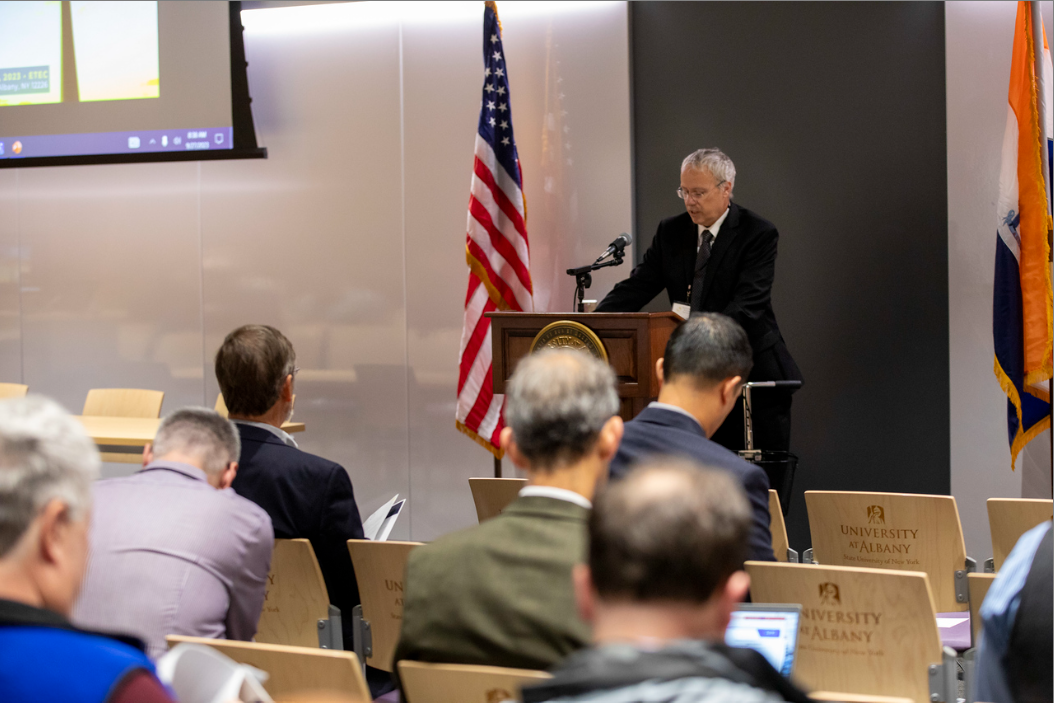
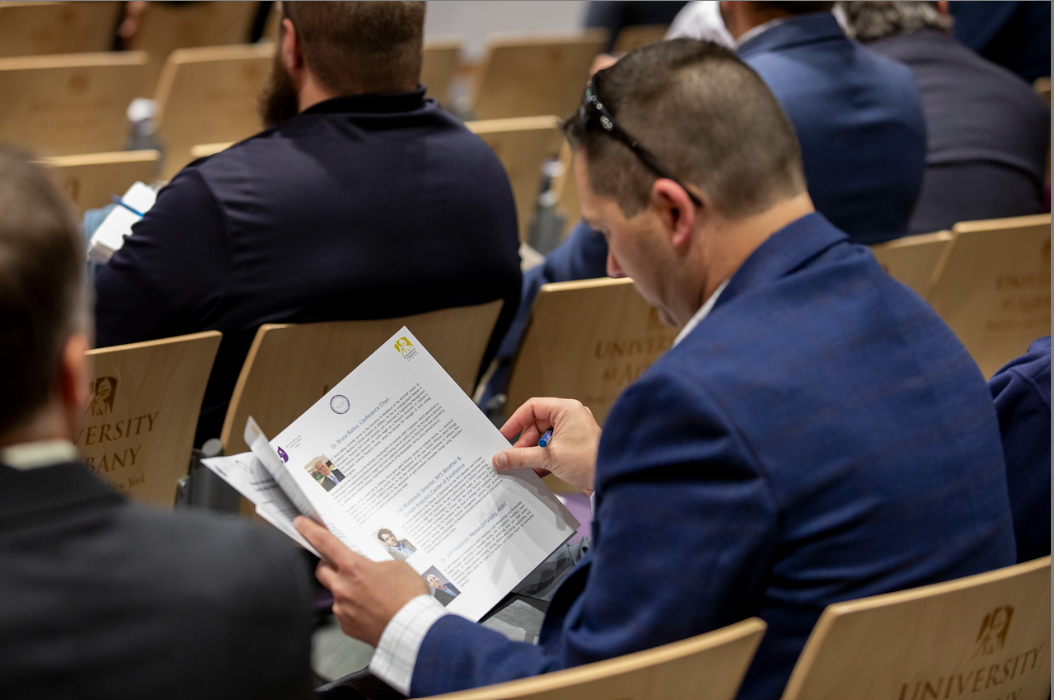
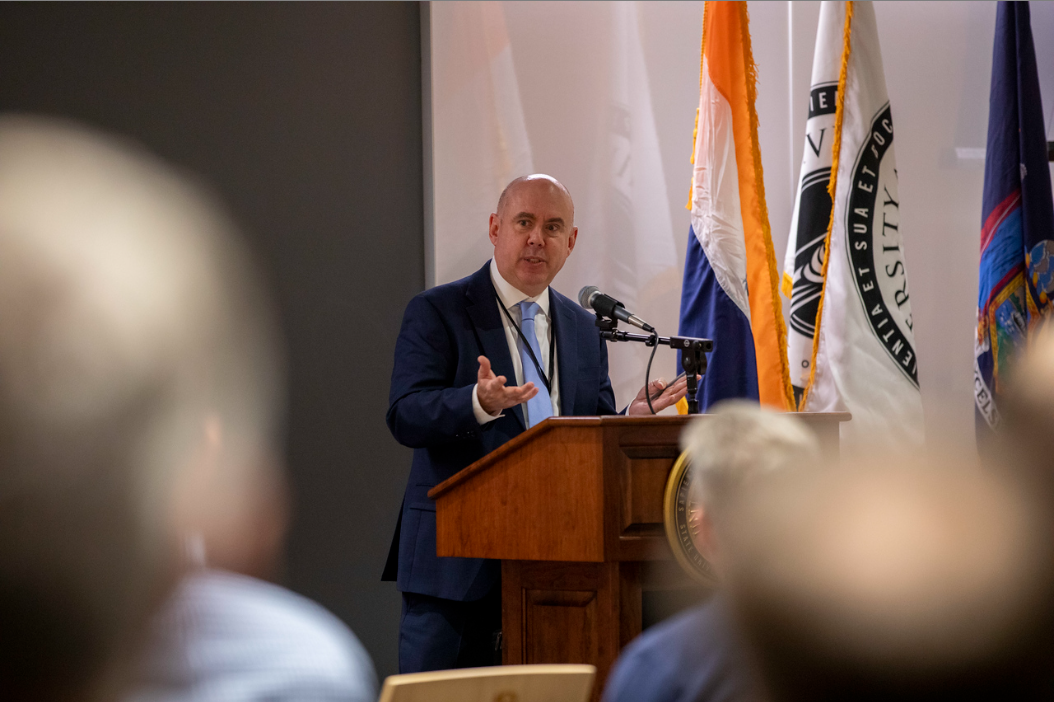
The Center is organizing a conference scheduled for 27-28 September 2023. This 2 day conference, occurring at the new ETEC building in Albany, will bring together regional experts and decision-makers to discuss the growing co-dependency of renewable energy supply and grid operations on weather in the Northeast. The attached flyer provides more information about the event.
The weather enterprise is expected to play a major role in the ongoing expansion of renewable energy sources in New York State as well as nationally and globally. Not only does weather drive the citing and performance of solar and wind energy systems, it also dynamically impacts the grid’s electricity demand and delivery capability. This codependency can be complex and will only grow as renewable energy expands geographically and reaches much higher grid penetrations. This conference is intended to discuss this situation and address such topics as:
What is the appropriate role of the weather enterprise in support of the expansion of renewable energy, and who are the key stakeholders?
What innovations and collaborations are necessary to ensure a sustainable transition to a renewables-dominant future?
What are the most important concerns and challenges among respective stakeholders as they perform their roles in this transition?
What are the particular technical challenges with respect to different renewable energy technologies (solar, land-based wind, offshore wind), energy storage, and grid integration?
Panels:
Panel 1: The Current Relationship Between Weather and the Grid
What is the interplay between weather and the grid when managing electricity supply, demand, and delivery? How is weather information used today to make grid management decisions at the transmission and distribution levels, and by whom? What are the primary sources of weather information? What are the most important weather parameters and timeframes for grid management purposes? How relevant are renewables and storage technologies today when managing grid operations, and what lessons have we learned so far?
Panel 2: Implications of More Renewables and the Electrification of More Things
What new grid management issues are expected to arise when renewables, especially wind and solar, become a much larger part of the electricity supply? How big a concern will the natural variability of wind and solar generation be, and what new weather information and grid measures will be necessary to accommodate this behavior? How does the combination of load growth, the electrification of more things (vehicles, space heating, cooking, etc.), and resilience goals in light of climate change impact the equation? How are diurnal/seasonal load shapes expected to change, and what are the implications?
Panel 3: State of the Art of Weather Data, Weather Forecasting, and Climate Modeling
How good are forecasts of severe weather events and short-term renewables generation, and under what scenarios are improvements most needed? What are the uncertainties associated with forecasting generation from: land-based and offshore wind? solar? hydro? combined resources? What weather scenarios are most problematic for the grid? What advantages do advanced observation networks like the NY Mesonet bring? How reliable are climate models in forecasting conditions 10 to 30 years from now? To what extent is climate change accounted for in the predicted future performance of renewable energy systems and the grid’s resource adequacy and reliability?
Panel 4: Transitioning Towards a Renewables-Driven Energy Economy
What are the key barriers to achieving a renewable-dominant energy supply while maintaining desired levels of grid adequacy and reliability? How can the weather enterprise help address these barriers? Who are the key stakeholders and what are their greatest concerns? What investments are needed? How important are cooperation and coordination with adjacent transmission control areas? Are existing collaborative activities sufficient to smoothly negotiate the transition? What new planning, research, and policy initiatives are recommended?
Panel 5: Advanced Weather Technologies
What innovations in weather sensing and data products promise new insights into weather analysis and forecasting? How and when will these technology advancements be accessible to the energy community? How is advanced weather information integrated into renewable energy project and grid operations? What is the value proposition for further investments in weather technology, and who are the beneficiaries? What role does government and university research play in promoting progress?
Panel 6: Applications of AI & Machine Learning
What is the role of artificial intelligence and machine learning in today’s weather enterprise with respect to the transitioning energy economy? How will this role be changing over the next decade? What are the primary drivers for innovation, and who are the key players? What investments are necessary to realize the full power of AI? How will benefits cascade across the interdisciplinary landscape?
